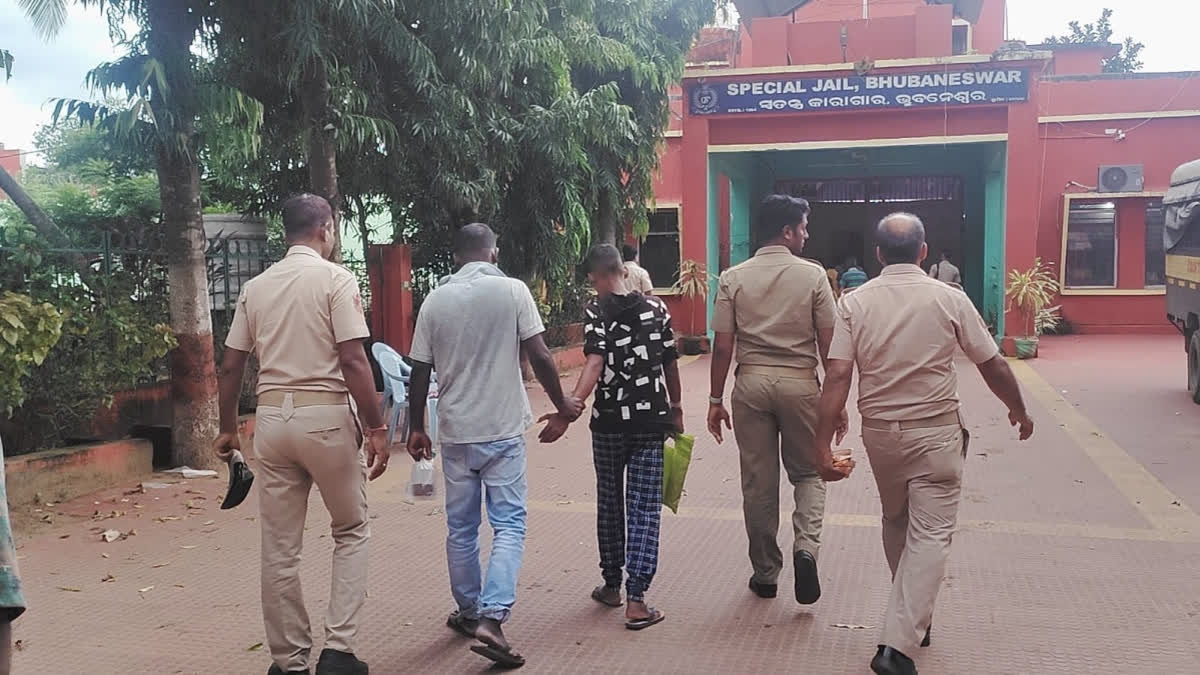Bhubaneswar: Jabir Sattar spent five years in Sambalpur Mandal Jail, muted by mental illness and a family that chose to forget his existence. Arrested five years ago for selling cough syrup, Jabir’s mental health issues and inability to communicate clearly left him stranded. Despite being granted bail, no one came forward to secure his release. His family never visited him, and the address on his warrant proved invalid.
It took the efforts of Odisha’s prison staff and an NGO to finally make him sense freedom. Jabir’s story is one of many being rewritten under the state’s compassionate Mukti campaign, which has mandated to free 60 deserving prisoners in 60 days.
But Jabir is just one of the many prisoners who, faced with dire situations, are made to continue living inside the jails. For Jabir, this was not just a release from jail but a second chance at life. His story is one of many that Operation Mukti seeks to address.
Recognizing the need for a more compassionate approach, the state prison department launched the Mukti campaign, on December 10. It focuses on prisoners who have served a major portion of their sentences, demonstrated good behavior, or are in the twilight years of their lives, unfit for the harsh realities of incarceration.
ADGP-cum-IG of Prisons & Correctional Services, Amitabh Thakur, the driving force behind this initiative, explains, “Operation Mukti is not just about releasing prisoners but giving them a chance to reform and reconnect with society. It is an attempt to balance justice with compassion.”
Mukti Campaign Offers a New Lease Of Life To Forgotten Prisoners (ETV Bharat) The campaign aims to:
1. Reintegrate reformed prisoners: Identify those who have shown good behavior and are unlikely to reoffend.
2. Provide justice to the marginalized: Assist undertrial prisoners who remain in jail due to lack of legal or financial resources.
3. Humanitarian release: Focus on elderly prisoners, those with severe health issues, and those in the final stages of their lives.
Since its launch, 30 prisoners have already been identified for release, with processes taking some time to ensure fair and just outcomes.
Releasing prisoners under Mukti involves a meticulous, multi-step process:
1. Behavioral Assessment: Prisoners must demonstrate significant improvement in behavior and speech, as observed by jail authorities.
2. Police Verification: A thorough investigation is conducted in the prisoner’s home district to gather community feedback.
3. Community Approval: Opinions of the village sarpanch, local police, and family members are taken into account to assess the prisoner’s readiness to reintegrate.
4. Sentence Review Board: Cases are presented before this board, which includes the Director General (DG) of Prisons, to finalize decisions.
For convicts, eligibility criteria include serving at least 14, 20, or 25 years of their sentence. Even life convicts can qualify if they meet the necessary benchmarks. Undertrials are assessed differently. Those who have committed their first offense, are young students, or are in dire personal circumstances are prioritized. Prisoners with advanced age—men above 65 and women above 60—are also considered for release, the officer stated.
Mukti Campaign Offers a New Lease Of Life To Forgotten Prisoners (ETV Bharat) One of the biggest challenges for undertrial prisoners is financial inability. "Many remain in jail simply because they cannot afford bail or surety amounts. Under Operation Mukti, funds have been allocated to assist such prisoners, ensuring poverty doesn’t become a barrier to freedom," he adds.
The numbers are staggering. Of the 17,500 undertrial prisoners across Odisha’s 86 jails, 3,512 are eligible for release but remain incarcerated due to systemic hurdles. For instance, 10 prisoners were recently released under Section 497 of the Indian Penal Code, which provides provisions for bail in special circumstances. Among them, nine were from Jharpada Jail, and one was from Jagatsinghpur Jail.
While many cases under Mukti highlight compassion, some require careful deliberation. Notable among these is that of Dara Singh, convicted in the Graham Staines murder case. His application has come before the Sentence Review Board several times, but strong opposition from some board members has led to repeated rejections.
Similarly, Dr. Somnath Parida, an 81-year-old convict serving a sentence for brutally murdering his wife, has been considered for release due to his advanced age. However, such cases require a delicate balance of justice, public opinion, and humanitarian considerations, Thakur stated.
Reforming the Prison Ecosystem
Operation Mukti is not just about individual prisoners; it’s a part of larger reforms in Odisha’s prison system. To improve healthcare, modern facilities are being introduced. Currently, 25 ambulances cater to emergencies, with plans to increase the fleet. Efforts are also underway to merge smaller jails with low inmate numbers to optimize resources and beat staff crunch issues.
Many jails are understaffed, making it difficult to operate in shifts and maintain proper security and management.
"Operation Mukti is a bold step toward humanizing the prison system. It recognizes that justice isn’t just about punishment—it’s also about providing opportunities for reform and rehabilitation," the officer stated.
For prisoners like Jabir, this campaign comes as a beacon of hope. Though his family still remains unconcerned, Jabir will be leading a life at the NGO that has accepted him as their own.
Read More
